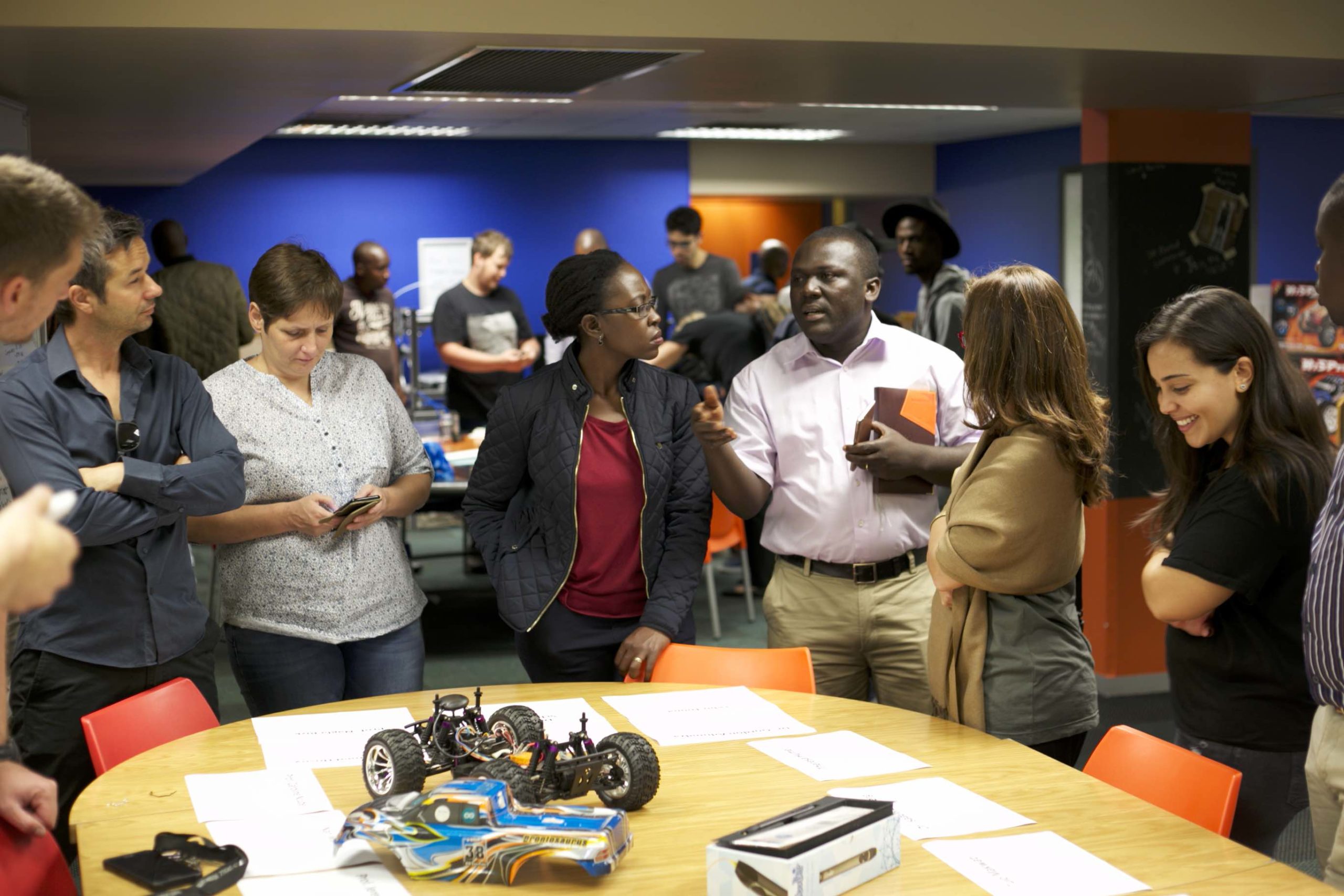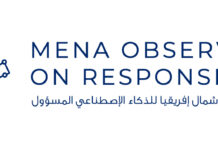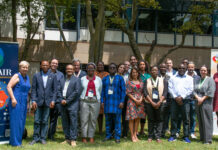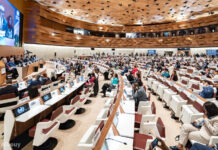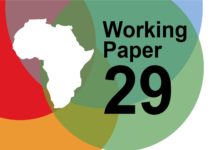Enthusiasts and researchers gathered on Friday 3 March 2017 to discuss the growing African maker movement. The workshop was hosted at the Institute for Economic Research on Innovation (IERI) at the Tshwane University of Technology in Pretoria, South Africa, with support from Open AIR and the Wits University LINK Centre in Johannesburg.
The African maker movement is focused on largely informal, openness-oriented innovation by collectives of interdisciplinary makers working together in makerspaces. Sometimes referred to as an “open source hardware” movement, making typically involves the collaborative use of digital 3D printers, Arduino circuits, laser cutters and milling machines to create innovative products.
Makers from Gauteng Province, Durban and Cape Town began the workshop by giving first-hand accounts of their experiences, objectives and plans in building makerspaces. Attendees heard how these spaces are approaching issues of sustainability, innovation/enterprise-scaling, outreach, skills development, and national networking. Open AIR researchers from Egypt, Kenya, South Africa and Canada presented preliminary findings on those countries’ existing maker movements.
The maker collectives featured were Geekulcha in Pretoria, I Make Makers Lab at the Makers Village in Irene (next to Pretoria), Maker Station in Cape Town, eKasi Lab Ga-Rankuwa in Pretoria North, The MakerSpace in Durban, the Digital Innovation Zone (DIZ) MakerSpace at the Wits University Tshimologong Digital Innovation Precinct in Johannesburg, KATO in Cape Town, the University of Pretoria (UP) MakerSpace, and BinarySpace in Vanderbijlpark (in the Vaal Triangle, south of Johannesburg).
On Thursday, a team of Open AIR researchers took a pre-workshop tour to visit some of Pretoria’s exciting and diverse makerspaces. Our collaborators from South Africa, Kenya, Ethiopia, Egypt, Nigeria, Ghana, and Canada rode the Tshwane University of Technology bus from space to space, sharing insights and ideas from across the continent on the way. Highlights from the tour included the UP MakerSpace, Geekculcha (headquartered at mLab Southern Africa, in the The Innovation Hub), and the I Maker Makers Lab.
On the Saturday after the workshop, the three days of activities wrapped up with Open AIR researchers receiving an “Intro to Making” session facilitated by one of South Africa’s pioneering makerspace, House4Hack. (Guided by House4Hack members, the Open AIR participants built Arduino-controlled, cricket-playing robots!)
The workshop and the Open AIR Partnership are supported by Canada’s Social Sciences and Humanities Research Council (SSHRC), and International Development Research Centre (IDRC), and by the UK Department for International Development (DFID).
Highlighted Tweets from the Event:
Open AIR research into the Maker movement
Fourth and last research team, Prof. Jeremy de Beer, University of Ottawa @jdebeer #SAMakers pic.twitter.com/otjb7h6wy3— Fortunatus Mhlophe (@FortMhlo) March 3, 2017
#PackedHouse #FullHouse at our #SAMakers workshop! pic.twitter.com/yWb630zrc4
— Open A.I.R. (@Afrinnovation) March 3, 2017
.Afrinnovation team saw Africa’s largest 3d printer today: 1 m3, 1kg/hr, ZAR30/kg ABS – https://t.co/ZL2yXi8cuj pic.twitter.com/OT7npq2RgK
— Jeremy de Beer (@jdebeer) March 2, 2017
#SAMakers now trending on Twitter: Thanks @IDRC_CRDI + @SSHRC_CRSH for funding our research on innovation in Africa! https://t.co/kwifLjqLON
— Open A.I.R. (@Afrinnovation) March 3, 2017
#SAMakers breakout session discussing the need to create an international collective to enhance #makermovement. #OpenAir @CSI_Ghana pic.twitter.com/a9h9JdKUY3
— Yaw #StopAtNothing (@yawgyamfi) March 3, 2017
Members of our @Afrinnovation New & Emerging Researchers Group @nelhoussamy @victornzomo @A2K4D @ #SAMakers pic.twitter.com/xBdpgPUuzv
— Nagla Rizk (@naglarzk) March 3, 2017
With Hans Fouche of @DDMakerRepublic on @Afrinnovation #SAMakers tour. Africa’s largest 3D printer for @AshesiDesign @ashesi? 👍 @CWJackson4 pic.twitter.com/IOBg7OQfAh
— Dr. Gordon Adomdza (@DrGKAdomdza) March 4, 2017

